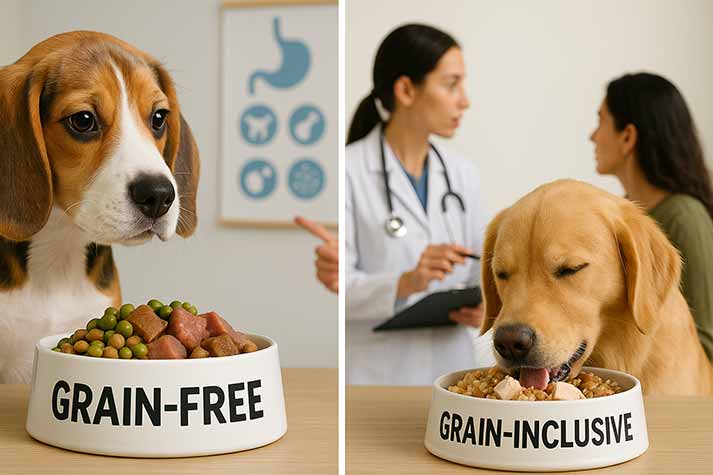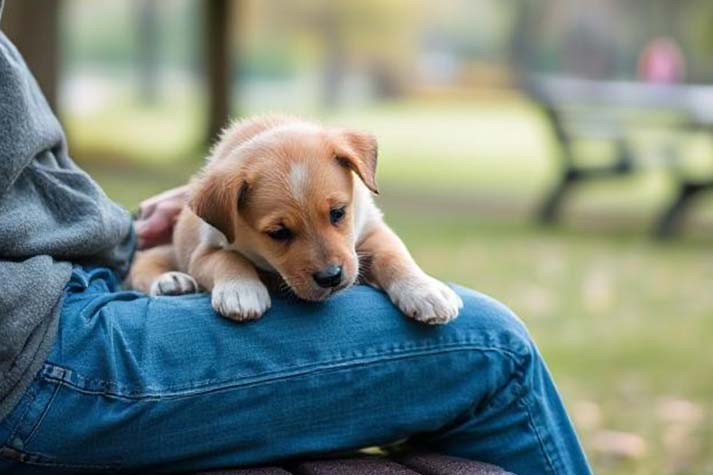
08 Dec
Drug Poisoning in Dogs – Signs and Symptoms
As much as our dogs’ love eating, not everything they sink their teeth into is beneficial for them. A typical food-motivated pup can chew down on their dinner like an organic vacuum cleaner, not pausing for a breath until they have had their fill. This means there are certain things a dog owner should look out for. Since your pup cannot differentiate between what’s good for them and what isn’t, and as commonplace household items can be toxic to your dog, it is wise to learn to recognize the symptoms of poisoning in your pooch.
Common Symptoms of Poisoning in Dogs
The symptoms your dog exhibits after ingesting something poisonous vary, as they depend on the particular substance your dog has ingested and the quantity of it. Grapes, chocolates, and bleach are all poisonous to dogs, and because you cannot watch your pooch for every second of every day, it is important to recognize the signs of poisoning and how to respond appropriately.
Here Are A Few Symptoms or Signs Your Dog Has Eaten Something Poisonous:
- Vomiting: Vomiting or a loss of appetite may be observed. Pay attention to the
colour and nature of discharge, and see if your pet has vomited the irritant out. Always consult
your vet if your pet suddenly starts vomiting.
- Diarrhoea: Sudden, runny stools can be a sign of poisoning. Look out for the
colour and for the presence of blood in the stool. If there is blood, note what kind (black tarry
blood or bright red blood), and call your vet and inform them immediately. Also pay attention to any
unusual material in the stool, such as colourful substances.
- Seizures: Seizures, shaking, or tremors can be indicators of poisoning,
especially if there is a sudden onset of them.
- Bleeding: Check for bruising and bleeding; in and around their mouth or around their groin. Check for blood in their urine and stool.
Diagnosing Poisoning
Identifying and diagnosing poisoning in dogs can be difficult, especially if you’ve suddenly found them exhibiting symptoms. In such a scenario, do not panic, and immediately call & rush to your vet. The vet can provide a faster and clearer diagnosis if you happen to find the substance your pet has ingested, whether that is a toxic fruit or medication.
A few details can speed up the diagnosis process; an account of where and when you found your dog exhibiting symptoms, and what those symptoms are can help a vet immensely. If your dog has found their way into a medicine cabinet or into ingested a few unsupervised pills, bring the medication to your vet so they may prescribe an antidote accordingly. If you cannot tell the vet these details, note when they started displaying symptoms, as well as how serious they were and whether they suddenly displayed symptoms or progressively.
Treating Drug Poisoning in Dogs
The reason the details of when and how you found your pet, exhibiting what symptoms and for how long are important, is because your vet will diagnose and treat your pup accordingly. If you don’t know these details, your vet is likely to run a few tests, to try and determine the source of poisoning.
Your vet will then try to prevent the specific drug or substance from being absorbed further into your dog’s body. This involves various procedures, all of which are designed to flush their system of the intoxicant. Your vet may also make your dog throw up, to try and wash their stomach clean.
Fluids are important during such a time, as they will help flush the toxin out of their system and help maintain blood pressure. The medication prescribed will depend on what drug your dog consumed. Different toxins affect different systems in the body, so the best thing you can do is try to pinpoint what they may have ingested, and get them to a vet as soon as possible. Timely action can help prevent and reduce a lot of the long-term damage from drug poisoning, so act quickly and consult a veterinarian as soon as you notice any symptoms.
Household Items that are Poisonous to Your Dog
There are various household items which are ever-present in residences and can be harmful to your pup. We assume all pet owners to be responsible enough to not leave anything potentially toxic within their pet’s reach; you know what’s best for your baby, after all. That being said, substances safe for humans are often assumed to be safe for dogs, which is not the case. Here are a few substances that are safe for you, but not your dog.
- Commonly prescribed medication; anti-allergy pills like Allegra can be toxic to dogs, and cause a host of issues such as hyperactivity or seizures.
- An overdose of dog-specific medication.
- Commonly found foodstuffs; grapes, raisins, cherries, tomatoes, raw potatoes, chocolates, onions, and garlic are all found in nearly every household and are toxic to your pup if they happen to ingest any of them.
- Floor/glass cleaner, bleach, batteries, aerosols, rat/pest poisons, and disinfecting
liquids.
Nobody wishes for any harm to befall their pup. That being said, our dogs are curious and inquisitive creatures, and while their curiosity can sometimes lead to such situations, the onus is on the pet parent to ensure no such substance is within their pet’s reach. Even if they do somehow find their way into your pup’s system, it is important to be able to identify the signs of drug poisoning and act quickly. Remember, in most situations with your pup, acting quickly ensures they have a quicker recovery.






AUTHOR’S BIO
Carry My Pet
Passionate pet enthusiasts and globetrotters, dedicated to easing furry friends' journeys worldwide. Penning tales of compassion at CarryMyPet, where every relocation is a tail-wagging adventure.